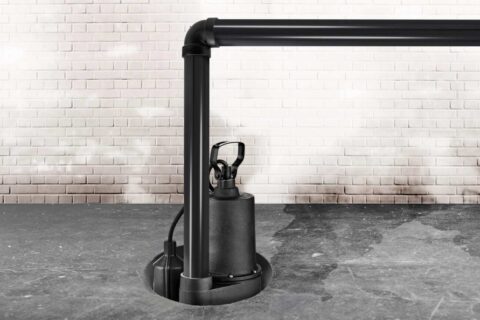BE SURE TO AVOID THESE SUMP PUMP MISTAKES
A sump pump is sometimes the first and last line of defense against a flooded basement, so it’s important that you keep your sump pump in tip-top shape so it can do its job and keep your basement dry. Whether you’ve just had a new sump pump installed or want to learn how to better care for your existing basement flood protection device, here are some mistakes to avoid to make sure your sump pump works great and keeps your basement from flooding.
Mistake #1: No Backup Power
If you have an electric sump pump, what do you think is going to happen if the power goes out during a rain storm or hurricane? To make sure that your sump pump continues to do its job even in the event of a power outage, make sure it’s connected to a backup power source (such as a generator or battery backup system).
Mistake #2: Not Testing Your System
You should get in the habit of testing your sump pump system from time to time to make sure that its in good working condition and able to provide you with the flood protection your basement needs. To test the system, fill the sump pit with water until it reaches the pump activation switch. First, make sure that the pump indeed comes on; second, take note of how fast the pump empties the pit. If it empties slower than normal, check the discharge pipe or contact a basement waterproofing company in Baltimore for sump pump maintenance.
Mistake #3: Ignoring Discharge Pipe
Speaking of the discharge pipe, you should inspect the pipe at both ends of the system (inlet and outlet) to remove any debris that might affect the flow rate of water being pumped out of the basement. If anything impedes the flow, it could affect the pumps ability to get rid of water faster than it’s coming in, which will result in basement flooding.

